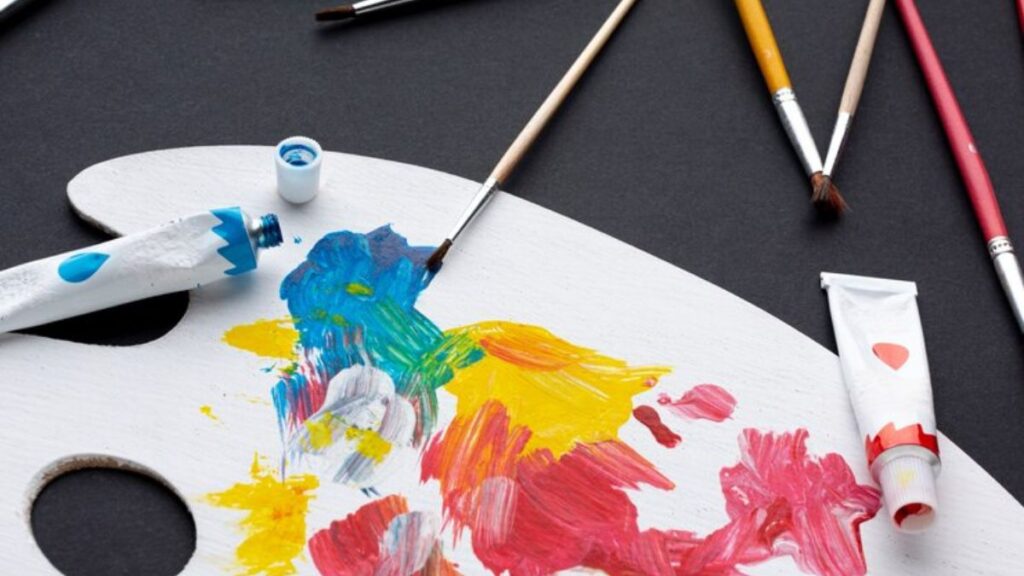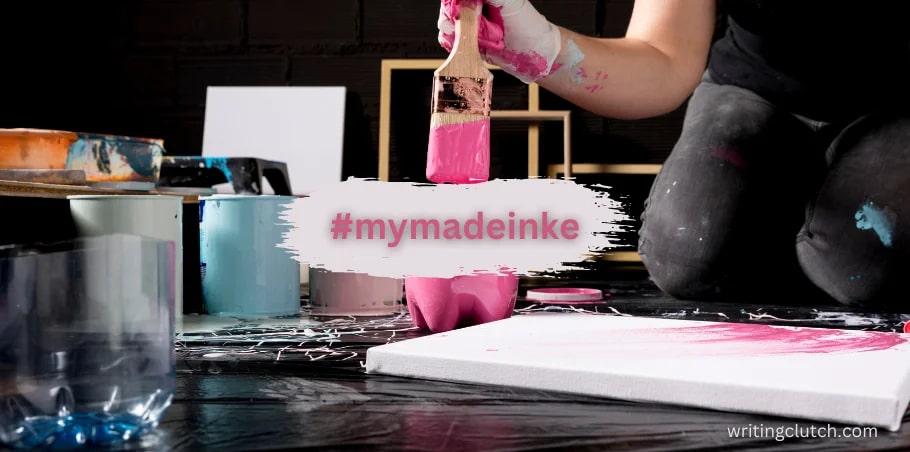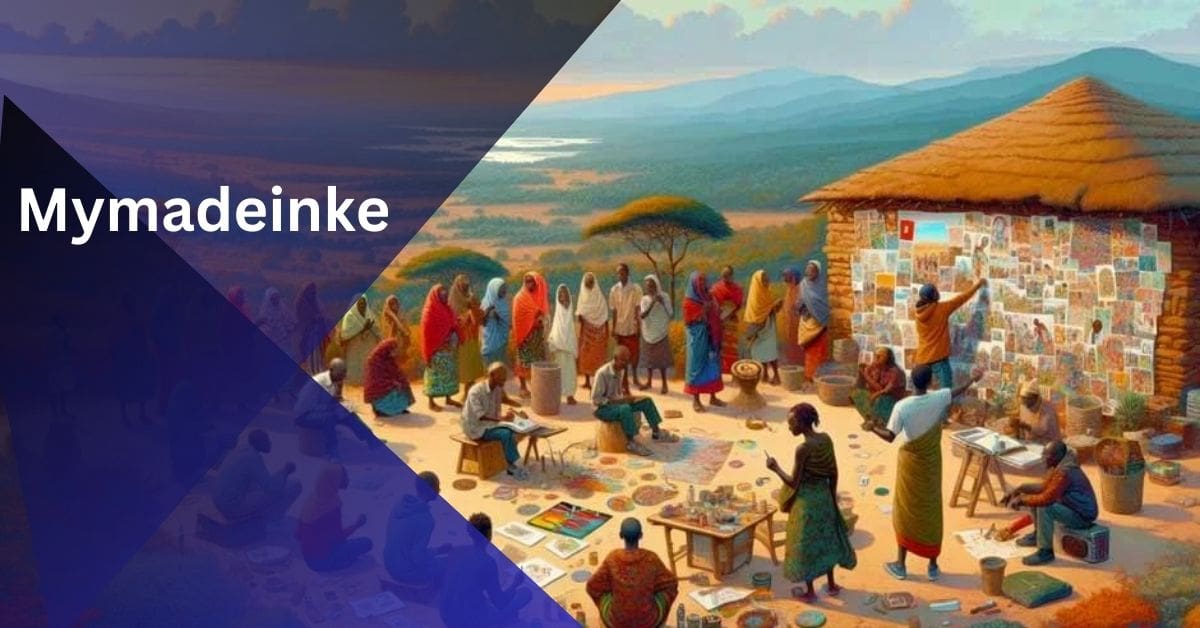#mymadeinke is a social media hashtag that encourages people to buy products made in Kenya. It helps support local businesses and showcase Kenyan craftsmanship.
What is #mymadeinke? – Detailed Info!
1. Defining #mymadeinke:
#mymadeinke is a social media-driven initiative aimed at promoting locally made products in Kenya. It encourages consumers to buy and support Kenyan-made goods, highlighting the quality and uniqueness of local craftsmanship.
This movement leverages the power of social media to showcase a wide array of products, from fashion and apparel to food and beverages, all proudly made in Kenya.
2. The Purpose and Vision of #mymadeinke:
The primary purpose of #mymadeinke is to boost the local economy by increasing demand for Kenyan-made products. The vision is to create a sustainable market where local artisans and manufacturers thrive, fostering a sense of national pride and economic independence.
By spotlighting the stories behind these products, the movement also aims to build a deeper connection between consumers and local producers.
The Origins and History of #mymadeinke!

1. Early Beginnings:
#mymadeinke started as a grassroots initiative on social media platforms, particularly Instagram and Twitter. Initially, it was driven by a few passionate individuals who wanted to change consumer perceptions and encourage the support of local businesses.
Their efforts quickly gained traction, as more people and businesses began to share their stories and products using the hashtag.
2. Significant Milestones in #mymadeinke:
Several key milestones have marked the growth of #mymadeinke. The movement saw significant growth during national holidays and festivals when people were more inclined to showcase their cultural heritage.
Collaborations with influencers and local celebrities further amplified its reach, making it a household name. Major events, such as trade fairs and exhibitions dedicated to Kenyan products, have also played a crucial role in its expansion.
What Are The Key Players in the #mymadeinke Movement?
1. Notable Personalities and Influencers:
Prominent figures in the #mymadeinke movement include social media influencers, fashion designers, and entrepreneurs who actively promote Kenyan-made products.
Individuals like Joy Kendi, Wambui Kibue, and Boniface Mwangi have used their platforms to advocate for the movement, drawing significant attention and support.
2. Organizations and Brands Involved:
Various organizations and brands have also embraced #mymadeinke. The Kenya Association of Manufacturers (KAM) and the Kenya National Chamber of Commerce and Industry (KNCCI) are among the notable organizations supporting this initiative.
Brands like Sandstorm Kenya, Kazuri Beads, and Rift Valley Leather are examples of businesses that proudly market their products under the #mymadeinke banner.
The Impact of #mymadeinke on Local Communities!
1. Economic Benefits:
#mymadeinke has had a substantial economic impact on local communities. By encouraging consumers to buy locally, the movement has increased sales for small and medium-sized enterprises (SMEs), leading to job creation and economic growth.
This has helped reduce poverty levels and improve the standard of living for many artisans and their families.
2. Social and Cultural Impact:
The social and cultural impact of #mymadeinke is equally significant. The movement has fostered a sense of pride in Kenyan culture and heritage.
It has also promoted cultural exchange and understanding, as people learn more about the diverse products and traditions from different parts of the country.
Additionally, it has encouraged the preservation of traditional crafts and skills that might otherwise have been lost.
Success Stories from #mymadeinke!
1. Case Studies of Successful Initiatives:
One notable success story is that of Akina, a fashion brand that started small but gained national recognition through #mymadeinke. By leveraging the movement’s visibility, Akina was able to expand its customer base, increase sales, and even venture into international markets.
2. Inspiring Journeys of Entrepreneurs:
Entrepreneurs like Peter Kariuki, who runs a small-scale leather workshop, have also found success through #mymadeinke.
Peter’s journey from a struggling artisan to a successful business owner is a testament to the power of local support and the effectiveness of the movement. His story inspires many other artisans to pursue their dreams with renewed vigor.
How to Participate in the #mymadeinke Movement?

1. Steps for Businesses to Get Involved:
Businesses looking to join the #mymadeinke movement can start by incorporating the hashtag into their marketing campaigns. They should share stories and behind-the-scenes looks at their production processes to engage consumers. Collaborating with influencers and participating in local trade fairs and exhibitions can also help increase visibility.
2. How Consumers Can Support #mymadeinke?
Consumers can support #mymadeinke by choosing to buy locally made products and sharing their purchases on social media using the hashtag.
They can also attend events and markets that feature Kenyan products, providing direct support to local artisans and businesses. Encouraging friends and family to do the same can further amplify the impact of the movement.
Challenges Faced by the #mymadeinke Movement!
1. Economic and Market Challenges:
Despite its success, #mymadeinke faces several challenges. Economic factors such as inflation and high production costs can hinder the growth of local businesses.
Additionally, competition from cheaper imported goods often makes it difficult for Kenyan products to compete on price, even though they may offer superior quality.
2. Cultural and Social Barriers:
Cultural and social barriers also pose challenges. Some consumers still perceive locally made products as inferior to imported ones.
Overcoming this perception requires continuous education and awareness campaigns to highlight the quality and uniqueness of Kenyan products.
Additionally, there is a need to address the lack of infrastructure and resources that some artisans face, which can limit their ability to scale up production.
What Are The Future Prospects of #mymadeinke?
1. Upcoming Trends and Innovations:
The future of #mymadeinke looks promising, with several trends and innovations on the horizon. There is a growing interest in sustainable and ethically produced goods, which aligns well with many locally made products.
Innovations in digital marketing and e-commerce are also set to play a significant role in expanding the reach of Kenyan products to global markets.
2. The Vision for the Future:
The long-term vision for #mymadeinke is to establish a robust ecosystem where local products are not only preferred but also celebrated globally. This involves continuous support from both the government and private sector to ensure that local businesses have the resources and infrastructure needed to thrive.
With sustained efforts, the movement aims to make Kenyan products synonymous with quality and innovation worldwide.
The Role of Technology in #mymadeinke!
1. Digital Marketing and Social Media:
Technology, particularly digital marketing and social media, plays a crucial role in the #mymadeinke movement. Platforms like Instagram, Facebook, and Twitter are essential for spreading the word and engaging with a broad audience.
These platforms allow businesses to showcase their products, tell their stories, and connect with consumers on a personal level.
2. E-commerce Platforms Supporting #mymadeinke:
E-commerce platforms such as Jumia and Kilimall have also been instrumental in supporting #mymadeinke. These platforms provide a marketplace for local products, making it easier for consumers to find and purchase Kenyan-made goods.
They also offer logistical support, helping small businesses reach customers beyond their immediate geographic area.
How to Promote #mymadeinke?
1. Effective Marketing Strategies:
Effective marketing strategies for promoting #mymadeinke include leveraging influencer partnerships, engaging in content marketing, and utilizing paid advertising. Influencers can help reach a wider audience and add credibility to local products.
Content marketing, such as blogs and videos, can tell the stories behind the products, making them more appealing to consumers.
2. Leveraging Social Media for Promotion:
Social media remains one of the most powerful tools for promoting #mymadeinke. Consistent posting, engaging with followers, and using targeted ads can significantly boost visibility.
Creating interactive content like polls, contests, and live sessions can also increase engagement and attract more supporters.
#mymadeinke in Various Industries!

1. Fashion and Apparel:
The fashion and apparel industry is a major player in the #mymadeinke movement. Brands like KikoRomeo and Suave Kenya showcase the creativity and craftsmanship of Kenyan designers.
These brands not only cater to local markets but also attract international attention with their unique designs and high-quality products.
2. Handicrafts and Artisanal Products:
Handicrafts and artisanal products are at the heart of #mymadeinke. Items like Maasai jewelry, Kikoy fabrics, and wooden carvings reflect Kenya’s rich cultural heritage. These products are popular among both locals and tourists, providing a significant source of income for artisans.
3. Food and Beverage:
The food and beverage industry also plays a crucial role in #mymadeinke. Local brands like Kericho Gold and Dormans Coffee highlight the high quality of Kenyan agricultural products. These brands emphasize sustainability and fair trade practices, making them attractive to conscious consumers.
Consumer Trends and Preferences for #mymadeinke!
1. Popular Products and Services:
Popular products under the #mymadeinke banner include fashion items, home décor, and organic food products. Services such as eco-tourism and locally run tours are also gaining traction.
Consumers are increasingly seeking out unique, high-quality products that reflect their cultural pride and support local economies.
2. Changing Consumer Behaviors:
Consumer behaviors are shifting towards more sustainable and ethical choices, which bodes well for #mymadeinke. People are becoming more aware of the benefits of buying locally, both for the economy and the environment.
This trend is expected to continue, with more consumers opting for Kenyan-made products over imported goods.
Frequently Asked Questions About #mymadeinke:
1. How can I find products with the #mymadeinke hashtag?
You can find products using #mymadeinke by searching the hashtag on social media platforms like Instagram, Twitter, and Facebook. Many local businesses and artisans use this hashtag to showcase their Kenyan-made products.
2. Can I start my own business and use the #mymadeinke hashtag?
Yes, you can start your own business and use the #mymadeinke hashtag to promote your Kenyan-made products. Just make sure to share quality content and engage with the community to gain visibility.
3. Are there any events related to #mymadeinke?
Yes, there are various events such as local markets, trade fairs, and exhibitions that focus on promoting #mymadeinke products. These events provide a platform for local artisans and businesses to display their products and connect with consumers.
4. How can I support #mymadeinke if I am not in Kenya?
Even if you’re not in Kenya, you can support #mymadeinke by buying Kenyan-made products online, sharing the hashtag on your social media, and spreading the word about the movement to friends and family.
5. What types of products are featured under #mymadeinke?
#mymadeinke features a wide range of products, including fashion items, home décor, handicrafts, and food items. It highlights anything made in Kenya by local artisans and businesses.
Conclusion:
In summary, #mymadeinke is a powerful movement that promotes Kenyan-made products and supports local businesses. It has had a significant economic, social, and cultural impact, fostering a sense of pride and economic growth. The initiative has also inspired many success stories and continues to gain momentum.


